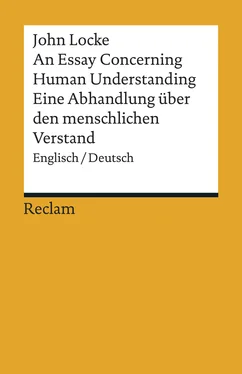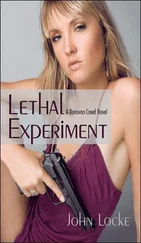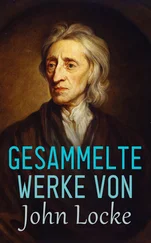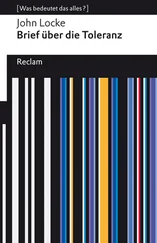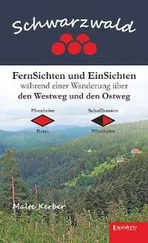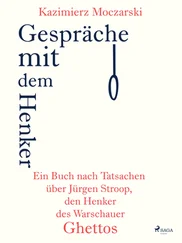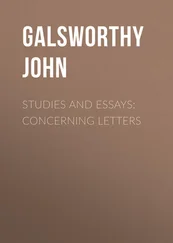§ 3. Time and Place are also the Foundations of very large Relations, and all finite Beings at least are concerned in them. But having already shewn in another Place, how we get these Ideas , it may suffice here to intimate, that most of the Denominations of things, received from time, are only Relations; thus, when any one says, that Queen Elizabeth lived sixty nine, and reigned forty five years; these Words import only the Relation of that Duration to some other, and means no more but this, That the Duration of her Existence was equal to sixty nine, and the Duration of her Government to forty five Annual Revolutions of the Sun; and so are all Words, answering, how long . [312]Again, William the Conqueror invaded England about the year 1070. which means this: That taking the Duration from our Saviour’s Time, till now, for one entire great length of time, it shews at what distance this Invasion was from the two Extremes: and so do all Words of time, answering to the Question when , which shew only the distance of any point of time, from the Period of a longer Duration, from which we measure, and to which we thereby consider it, as related.
§ 4. There are yet, besides those, other Words of time, that ordinarily are thought to stand for positive Ideas , which yet will, when considered, be found to be relative, such as are Young , Old , etc. which include, and intimate the Relation any thing has, to a certain length of Duration, whereof we have the Idea in our Minds. Thus having setled in our Thoughts the Idea of the ordinary Duration of a Man to be seventy years, when we say a Man is Young , we mean, that his Age is yet but a small part of that which usually Men attain to: And when we denominate him Old , we mean, that his Duration is run out almost to the end of that which Men do not usually exceed. […]
§ 5. The Relation also that things have to one another, in their Places and Distances, is very obvious to observe; as Above, Below, a Mile distant from Charing - cross , in England , and in London . But as in Duration, so in Extension and Bulk, there are some Ideas that are relative, which we signify by Names, that are thought positive; as Great , and Little , are truly Relations . For here also having, by observation, settled in our [314]Minds the Ideas of the Bigness of several Species of Things, from those we have been most accustomed to, we make them, as it were, the Standards whereby to denominate the Bulk of others. Thus we call a great Apple, such a one as is bigger than the ordinary sort of those we have been used to; and a little Horse, such a one as comes not up to the size of that Idea , which we have in our Minds, to belong ordinarily to Horses. […]
§ 6. So likewise Weak and Strong , are but relative Denominations of Power , compared to some Idea we have, at that time, of greater or less Power. Thus when we say a Weak Man, we mean one that has not so much Strength, or Power to move, as usually Men have, or usually those of his size have […]. And so abundance of Words, in ordinary Speech, stand only for Relations, (and, perhaps, the greatest part,) which at first sight, seem to have no such signification […].
Of Identity and Diversity
§ 1. ANOTHER occasion, the mind often takes of comparing, is the very Being of things, when considering any thing as existing at any determin’d time and place, we compare it with it self existing at another time, and thereon form the Ideas of Identity and Diversity . When we see any thing to be in any place in any instant of time, we are sure, (be it what it will) that [316]it is that very thing, and not another, which at that same time exists in another place, how like and undistinguishable soever it may be in all other respects: And in this consists Identity , when the Ideas it is attributed to vary not at all from what they were that moment, wherein we consider their former existence, and to which we compare the present. For we never finding, nor conceiving it possible, that two things of the same kind should exist in the same place at the same time, we rightly conclude, that whatever exists any where at any time, excludes all of the same kind, and is there itself alone. When therefore we demand, whether any thing be the same or no, it refers always to something that existed such a time in such a place, which ’twas certain, at that instant, was the same with it self, and no other. From whence it follows, that one thing cannot have two beginnings of Existence, nor two things one beginning, it being impossible for two things of the same kind, to be or exist in the same instant, in the very same place; or one and the same thing in different places. That therefore that had one beginning is the same thing, and that which had a different beginning in time and place from that, is not the same but divers. […]
§ 2. We have the Ideas but of three sorts of Substances; 1. God. 2. Finite Intelligences. 3. Bodies . First, God is without beginning, eternal, unalterable, and every where; and therefore concerning his Identity, there can be no doubt. Secondly, Finite Spirits having had each its determinate time and place of beginning to exist, the relation to that time and place will always determine to each of them its Identity as long as it exists.
[318]Thirdly, The same will hold of every Particle of Matter, to which no Addition or Subtraction of Matter being made, it is the same. […] All other things being but Modes or Relations ultimately terminated in Substances, the Identity and Diversity of each particular Existence of them too will be by the same way determined: Only as to things whose Existence is in succession, such as are the Actions of finite Beings, v. g . Motion and Thought , both which consist in a continued train of Succession, concerning their Diversity there can be no question: Because each perishing the moment it begins, they cannot exist in different times, or in different places, as permanent Beings can at different times exist in distant places; and therefore no motion or thought, considered as at different times can be the same, each part thereof having a different beginning of Existence.
§ 3. From what has been said, ’tis easy to discover, what is so much enquired after, the principium Individuationis , and that ’tis plain is Existence it self, which determines a Being of any sort to a particular time and place incommunicable to two Beings of the same kind. This though it seems easier to conceive in simple Substances or Modes; yet when reflected on, is not more difficult in compounded ones, if care be taken to what it is applied; v. g . Let us suppose an Atom, i. e. a continued body under one immutable Superficies, existing in a determined time and place: ’tis evident, that, considered in any instant of its Existence, it is, in that instant, the same with it self. [320]For being, at that instant, what it is, and nothing else, it is the same, and so must continue, as long as its Existence is continued: for so long it will be the same, and no other. In like manner, if two or more Atoms be joined together into the same Mass, every one of those Atoms will be the same, by the foregoing Rule: And whilst they exist united together, the Mass, consisting of the same Atoms, must be the same Mass, or the same Body, let the parts be never so differently jumbled: But if one of these Atoms be taken away, or one new one added, it is no longer the same Mass, or the same Body. In the state of living Creatures, their Identity depends not on a Mass of the same Particles; but on something else. For in them the variation of great parcels of Matter alters not the Identity: An Oak, growing from a Plant to a great Tree, and then lopp’d, is still the same Oak: And a Colt grown up to a Horse, sometimes fat, sometimes lean, is all the while the same Horse: though, in both of these Cases, there may be a manifest change of the parts: So that truly they are not either of them the same Masses of Matter, though they be truly one of them the same Oak, and the other the same Horse. The reason whereof is, that in these two cases of a Mass of Matter, and a living Body, Identity is not applied to the same thing.
Читать дальше
